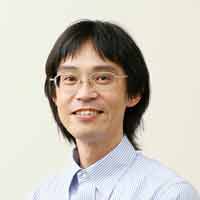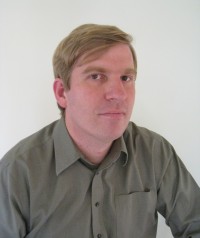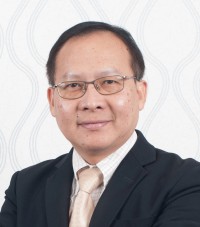Invited Speakers
Keynote Speakers
|
|
Prof. Sören AuerUniversity of Bonn and Fraunhofer IAIS, GermanyLinked Data and Open Data on the Web and within OrganizationsAbstract: Linked Data gained quite some traction recently for publishing and integration data on the Web. In this talk, we will discuss the life-cycle of linked data including its stages extraction, storage, curation, linking, enrichment, cleaning and visualization/exploration, some example of large scale applications including Enterprise Data Integration, Cultural Heritage portals and (Linked) Open Government Data. We will present some examples of existing large-scale Linked Data deployments in each of these domains and discuss promising directions for future research and development in the Linked Data realm. Bio: Prof. Sören Auer studied Mathematics and Computer Science in Dresden, Hagen and Yekaterinburg (Russia). Before pursuing a scientific career, Sören was managing director of adVIS GmbH, a Dresden-based Internet and IT service provider until 2003. In 2006 he obtained his doctorate in Computer Science from Universität Leipzig. From 2006-2008 he worked with the database research group at the University of Pennsylvania, USA. Currently, he holds the chair for Enterprise Information Systems at University of Bonn and leads a research group at Fraunhofer Insitute for Analysis and Information Systems (IAIS). Sören has made substantial contributions to social and semantic web technologies, knowledge engineering, usability, as well as databases and information systems. He aims to combine strong theoretical results with high-impact practical applications. Sören is author and co-author of over 100 peer-reviewed scientific publications, which attracted more than 5,000 citations and result in a H-index of 31. Sören led / is leading several large-scale collaborative research projects such as the European Union’s FP7-ICT flagship project LOD2 comprising 15 partners from 11 countries. Sören is co-founder of several high-impact research and community projects such as the Wikipedia semantification project DBpedia, the OpenCourseWare authoring platform SlideWiki.org or the social Semantic Web toolkit OntoWiki. The technology Sören develops with his team fuels many industrial applications, such as the intranet and site search at Daimler AG or the European Commission's open data portal. He is organiser and co-programme chair of renowned conferences and workshops, including OKCON 2010, ESWC 2010, ICWE 2011, WWW 2012, European Data Forum, co-editor of the International Journal on Semantic Web and Information Systems, area editor of the Semantic Web Journal. He serves as an expert for industry, the European Commission, the W3C and board member of the Open Knowledge Foundation. |
 |
Prof. Hideaki TakedaNational Institute of Informatics, JapanKnowledge is Power (now again)Abtract: The rapid development of the Internet, in particular, the dissemination of Web is showing that the phrase “knowledge is power” is real and possible. We live in the exciting time when the world is changing with the growth of the global knowledge, and artificial intelligence, in particular, Semantic Web is taking the important role in the change. In this talk, I will tell how knowledge in computers is now standing its ground by Linked Data and Social Media data. Formal knowledge representation has been discussed in Artificial Intelligence for a long time and it was applied to the real world problems as expert systems in 1980s. But the knowledge in the expert systems is articulated by knowledge engineers so that it was isolated from the information and data in the world. It results that the knowledge could neither bear the complexity of the real world nor adapt the change of the environment in the real world. Linked Data and Social Media Data are now filling the gap between knowledge and the real world. Linked Data is less formalized and consistent than the formal knowledge but its structure and content are reflected by those in the real world. Formal knowledge can give the structure to Linked Data as well as knowledge can be generated as abstraction of Linked Data. Social Media Data is even less formalized and consistent than Linked Data but it represents the dynamics of human activities in the real world. The implicit structure in Social Media Data can be also the source of knowledge. I will discuss the value and potential of Linked Data and Social Media Data through our experimental projects such as those for LOD in culture and natural science and those for Nico Nico Douga as Social Media. Bio: Hideaki Takeda is a professor at National Institute of Informatics (NII) Japan, and a professor at the Graduate University for Advanced Studies (Sokendai). He received the B. Eng., M. Eng. and Dr. Eng. degrees from the University of Tokyo, Japan, in 1986, 1988 and 1991, respectively. He worked at Norwegian Institute of Technology and Nara Institute of Technology prior to joining the current institution. He has been the Sumitomo endowed professor in the University of Tokyo between 2005 and 2010 and the professor at Research Institute for Sustainability Science (RISS) in Osaka University between 2006 and 2010. His interest includes Semantic Web, Social Web, and Community-based systems. He has been a program committee member for many Semantic Web conferences including ISWC, ESWC and ASWC. He is a member of JSAI, IPSJ, AAAI and Design Society. He is also a board member of ORCID (Open Researcher & Contributor ID) since 2010 and the president of Linked Open Data Initiative Inc., a non-profit organization for promotion of Linked Data in Japan. |
 |
Dr. Asanee KawtrakulKasetsart University and NECTEC, ThailandKnowledge Services Innovation for Life:
|
Industry Track Speaker
|
|
Dr. Sak SegkhoonthodPresident and CEO, Electronic Government Agency (EGA), ThailandOpen Data: a logical next step to e-GovernmentAbstract: Although, e-Government has been around for some time, its main purpose is often about getting better efficiency in government processes both internal management and service delivery. Until recently, the concept of open government has been realized by a number of countries where government agencies are encouraged to publish their data to the public for further use. In doing so, it is expected that transparency, collaboration and participation between government and its counterparts should be obtained. In this talk, a number of various examples from several governments regarding how they approach open government will be analyzed and a number of good strategies will be recommended. Bio: Dr. Sak Segkhoonthod received his B.Eng in Electronics from KMITL, Thailand, M.S. and Ph.D. in Electronics Systems Engineering from the University of Essex, UK. He is the President and CEO of Electronic Government Agency (EGA), Thailand. He was a researcher at NECTEC between 1997 and 2000 and worked in many national projects including Information Superhighway Testbed, ThaiSARN, GINet, SchoolNet and Public Key Infrastructure Projects. He was the director of Government Information Technology Services, Thailand. He has been Thailand's representative and invited speaker in many international meetings and events. |









